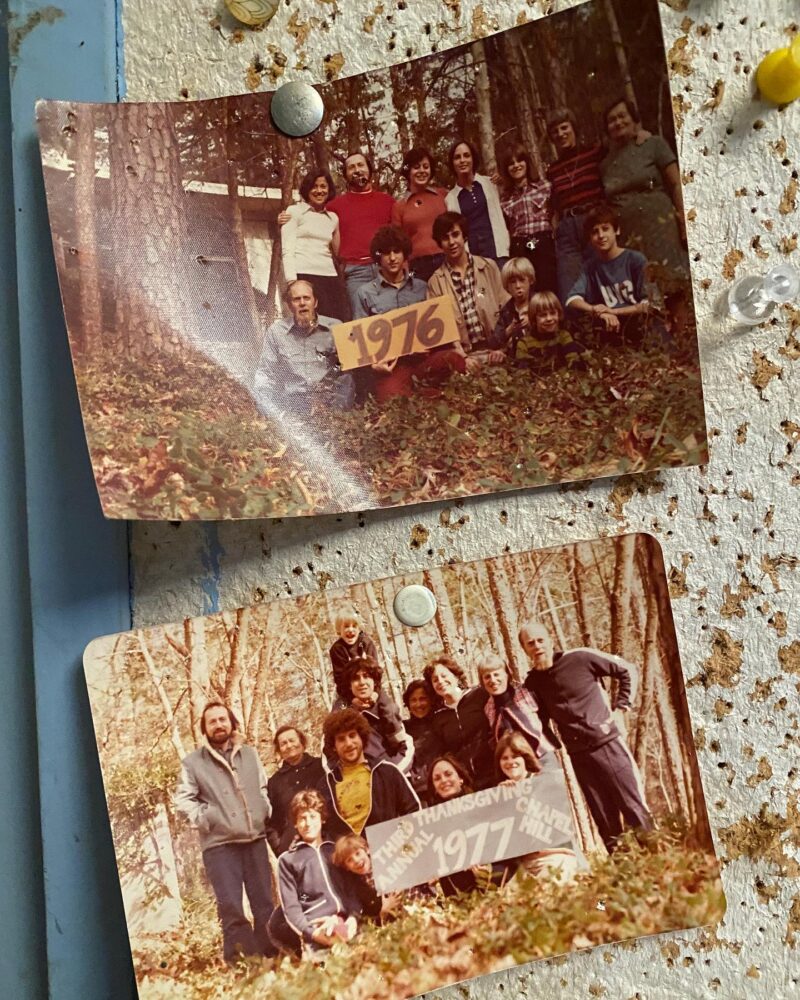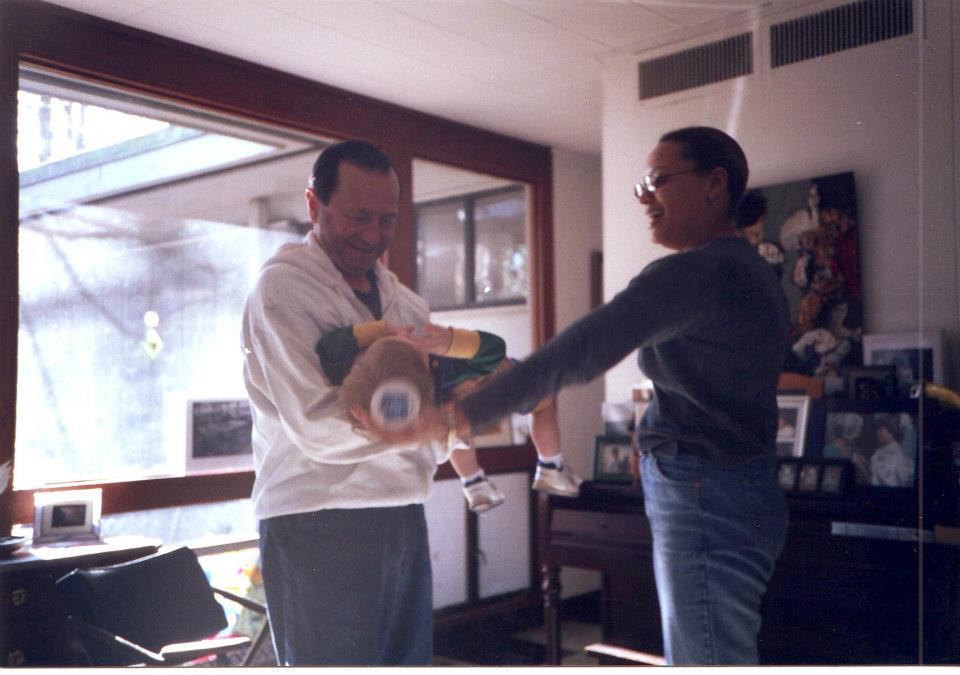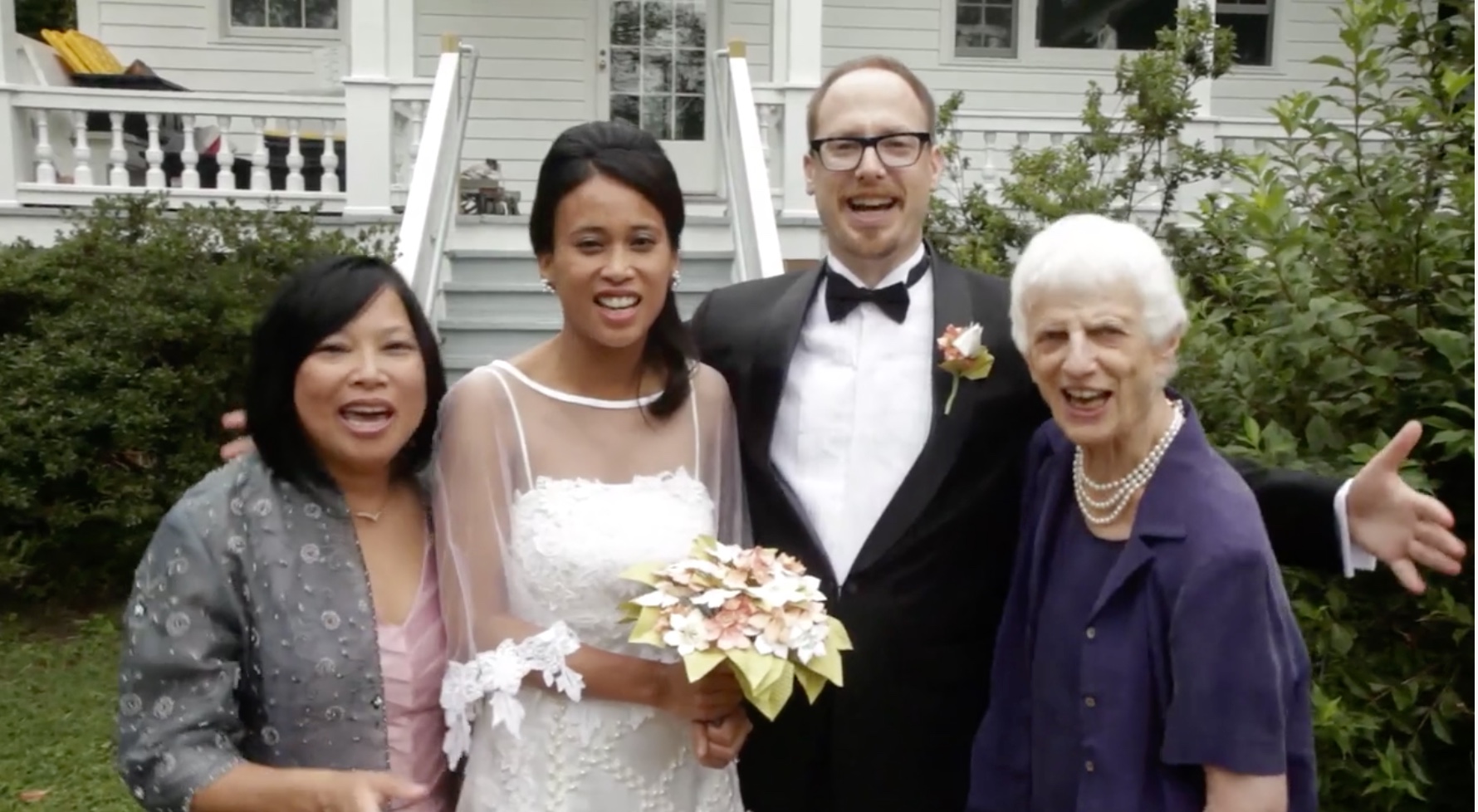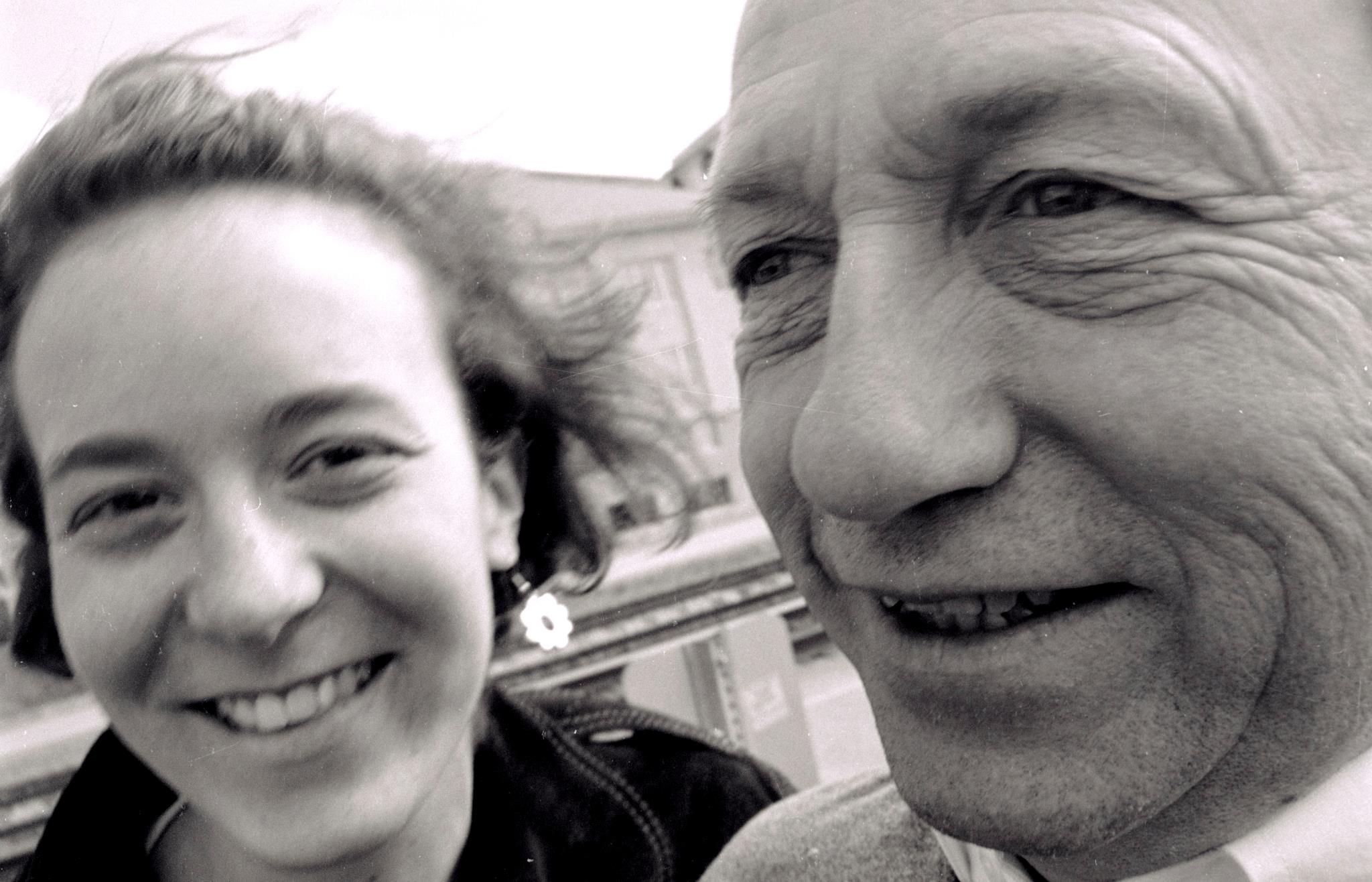
26 Nov Thanks Given
Our film “All The Rage” begins with a voice over line stating, “The Stories that we tell ourselves about ourselves shape our sense of who we are.” This line is never more profoundly apparent than on Thanksgiving. When we gather with family – especially after being apart – the stories that are told about us pull those embedded aspects of ourselves from places we have hidden them. This is especially true when we are at the transition point in life, moving from adolescence into adulthood.
I remember coming home for my first Thanksgiving after leaving for college. I had experienced the world in new ways and changed quite a bit. Having not witnessed those shifts, however, my family unconsciously disregarded them, and I felt those older stories being called forth. For many years, this clash of stories made coming home fraught with some tension. In fact, this dissonance between my own shifting story and the one that was reflected back to me, led me to suggest working on a book with my father called “Transitions.” I had the sense that in our culture of lost rituals, we were particular stunted in terms of making the shift from a child parent relationship to one of great equanimity. My father was a psychologist, and he saw the value in what I was talking about. Still, he had some trouble giving up power, so we weren’t able to pull the book together, but the process of working on it did help us find more balance in our relationship.

The other morning I woke up thinking a lot about my mother, my father, and Thanksgiving. I had some specific memories, but mostly I had laid in bed thinking about the resonance, the feeling of Thanksgiving, and how central it had become to my relationship to my parents after I left home. It was the time of year that I always came home. I had some ideas that I wanted to write down, but first I had to fill a hot water bottle for my daughter whose stomach was bothering her. As I poured the water, I suddenly felt a searing pain in my hand because some of the boiling water had spilled out onto my thumb. I quickly put my thumb on ice, hoping to limit the damage. The ice lessened the pain, but each time that I took it off, the pain quickly become insistent- almost like a cat, demanding my attention with its claws. The pain was mixed with a kind of confused anger that it had happened, and that it had disrupted my plan to sit down and write. I took a walk because I couldn’t concentrate and worked to find some meaning in the pain and the anger, while accepting that the ideas that I had hoped to write down were no longer present. The sense of urgency that I had felt to jot them down was gone. The pain of my burnt thumb had eclipsed these ephemeral notions.
All pain is grounded in the brain, so pain does not exist without some level of consciousness. However, the concept of pain is relative, and the balance between that which is physical and that which is emotional is complex and varied. I’m just finishing up a 10-week meditation program called “The Presence Process.” It’s not specifically about pain, but it does make a connection between traumas, both big and small, that we haven’t fully processed, and how those “unfelt emotions” lead us to repeat patterns within relationships – “dramas” so to speak – until we find a way to feel those feelings that are trapped in our bodies. A lot of those feelings are related to a universal need for unconditional love when we are young. Whatever flavor of attention we get when we are young colors our expectations and our sense of meaning around love throughout life. When we dig into the patterns of our lives, through a deeper understanding of our emotions and our expectations, we create a lot of new dramas, and we learn to move through those moments by responding to the impulse rather than reacting, which helps avoid repeating those dramas ad infinitum. So, I’ve been thinking quite a bit about my parents and my childhood, which means I’ve also been thinking quite a bit about Thanksgiving, which happens to fall on the day after I complete my 10-week mediation program.

The two things I was thinking about in relation to my parents were my mother’s Thanksgiving renditions of “The More We Get Together” and my father’s wedding speech that he wrote for my wife Suki and me. While this speech isn’t specific to Thanksgiving, it is connected to the fact that he would check out a dozen old movies from the library for our visit each year. The viewing and discussion of old movies bonded my father, Suki and me in ways that were reflected in that speech, entitled, “The Art of Successful Living, Filmmaker’s Version.” My father never made a movie nor wrote a book about them, but the three paragraphs that comprise that speech contain more wisdom about the art of filmmaking than anything I have read- and by extension, wisdom about the art of successful living:
I would like to share with you the secret of successful living — filmmaker’s version.
Central casting has assigned you a role in The Human Comedy. You have to accept the role, but view it as a continually changing and evolving part. Above all, do not hold to the false belief that you are audience, not actor, that you are a watcher of other’s foibles and pratfalls.
You are both actor, audience (i.e. observer of your own performance), script doctor, editor, and director. The script and performance are always being revised — this is a work in progress. The better you understand the comedy and your own behavior as an amusing player — the lighter your touch, the better you become at improving and enriching your performance. Those who deny they have been cast in parts become sterile, inflexible caricatures, while those who embrace their roles and keep working to improve their performances, grow, change, and expand their selves.
Above all, remember the script is not Long Day’s Journey into Night nor the tale of woe of Juliet and her Romeo, but it is The Human Comedy, a warm and endearing script. Play it well and your days will be mostly joyful.
Words Spoken by David Galinsky, 9/13/97

This speech has helped guide me through life since that wedding day. That was a ritual that certainly helped to shift our relationship. Every time I read that speech, I get something different from it, which in itself gives me the greatest gift of all: the knowledge that the truest wisdom comes through metaphor. Metaphor meets us where we are, but also gives a map to go further down the road. As we constructed “All The Rage,” the sense of the import of metaphor helped us shape the film, and it even became a kind of spine that helped us to construct it. This helped me to appreciate it even more.
My father was far from perfect, and like everyone, he had his flaws. Like many psychologists, he didn’t readily embrace personal awareness of his flaws, but his strengths were profound. He had a great deal of wisdom, and when it was most needed, he was able to find the kind of empathy and present compassion that few can muster. At his funeral, I pointed out that he could go ballistic if I ordered the most expensive thing on the menu, but when I wrapped a car around a tree, he was calm and centered. As stated above, he and I had some difficulties with the transition from my adolescence to adulthood. He wanted me to follow a more standard path, yet he modeled thumbing one’s nose at the system in my youth, so the hypocrisy of that demand drove me a bit crazy. After college, he worried that I would not find my way in the world, which wasn’t helpful to me. However, once I met my future wife Suki and we started to work on making a film together, he softened a little.
Again, Thanksgiving was the holiday that I always spent with my family, so it has a profound familial connection and import, that has become complicated by Covid, separation, the loss of my mother, I am quarantining with my immediate family and the sense of dislocation from expectation is palpable. Something feels very off today. We will spend time with friends who we have been quarantining with, and I am grateful for them, but staying aware of how different things feel. It is also the second Thanksgiving after the loss of my mother, and I can feel the presence of grief, which I am sitting with. My mom wasn’t a cook, but she was a connector who was a ball of energy. For nearly 30 years, on Thanksgiving she would burst into song throughout the entire day. It would drive us a bit crazy, but I would give riches to have her disrupting the room right now.
My brother got married five years ago, and just moments before the ceremony, I filmed my mother leading him, his fiancé, and his mother-in-law in a rendition of The More We Get Together. While my mom was a connector, she was also an isolator. I wouldn’t say she was a divider, but as much as she wanted to bring people together she also had a profound need for her own space. Whenever she was going to a party, she let you know that she had somewhere else to be – not because she wanted you to think that she had more important things to do, but instead she wanted an escape hatch. She told a lot of white lies, intending to protect people, but really protecting herself. When her memory started to fail her, and the swirling power of anxiety started to break down her prodigious intellect, these little white lies became a gigantic weight on her ability to manage her situation. I could see this so clearly, almost as if I was looking though a telescope at the craters on the moon. However, I felt helpless because there was no way for me to translate this awareness to her without being subjected to profound resistance, which only made things worse.
A few days before she fell and cracked her her skull, leading to a slow cognitive decline, we had a birthday party for my wife. Our friends who lived near her brought her to our house because she could no longer drive, which drove her crazy. As usual, she was the life of the party, until she abruptly decided she needed to go home, and a friend took her home. Her lack of total autonomy was weighing on her that night. The following Tuesday I met with her and her doctor and social worker to see if there was anything we could do to help her ease her anxiety. She refused to acknowledge there was a problem, despite the fact that it was causing her to have mini seizures at times. Looking back, I can see just how hard it was for her to let go of her story. She had always been incredibly sharp and aware, and losing that made her feel like she was losing herself. Rather than accept it, she fought against it, but that only made the problem worse. Two days after that meeting, she had a mini seizure which caused her to fall.
So, this Thanksgiving I’m reflecting on my own story, the one I tell myself, and the one that is reflected back to me. We can gain a lot of insight from the stories that others tell us about ourselves. While they may not resonate, and they may not feel accurate, they can help us to step outside of ourselves, and gain a bit more awareness. Sometimes the things that we think are unlovable about us get pushed down, and as we hate them in ourselves, we get drawn towards them in others. While so many of us can’t be with family today on this Covid Thanksgiving, we can take some time to be grateful for the stories that people tell about us, even as they drive us crazy, for within those tales of metaphor (these are not facts after all), lies awareness that we can uncover, and be thankful for.

No Comments